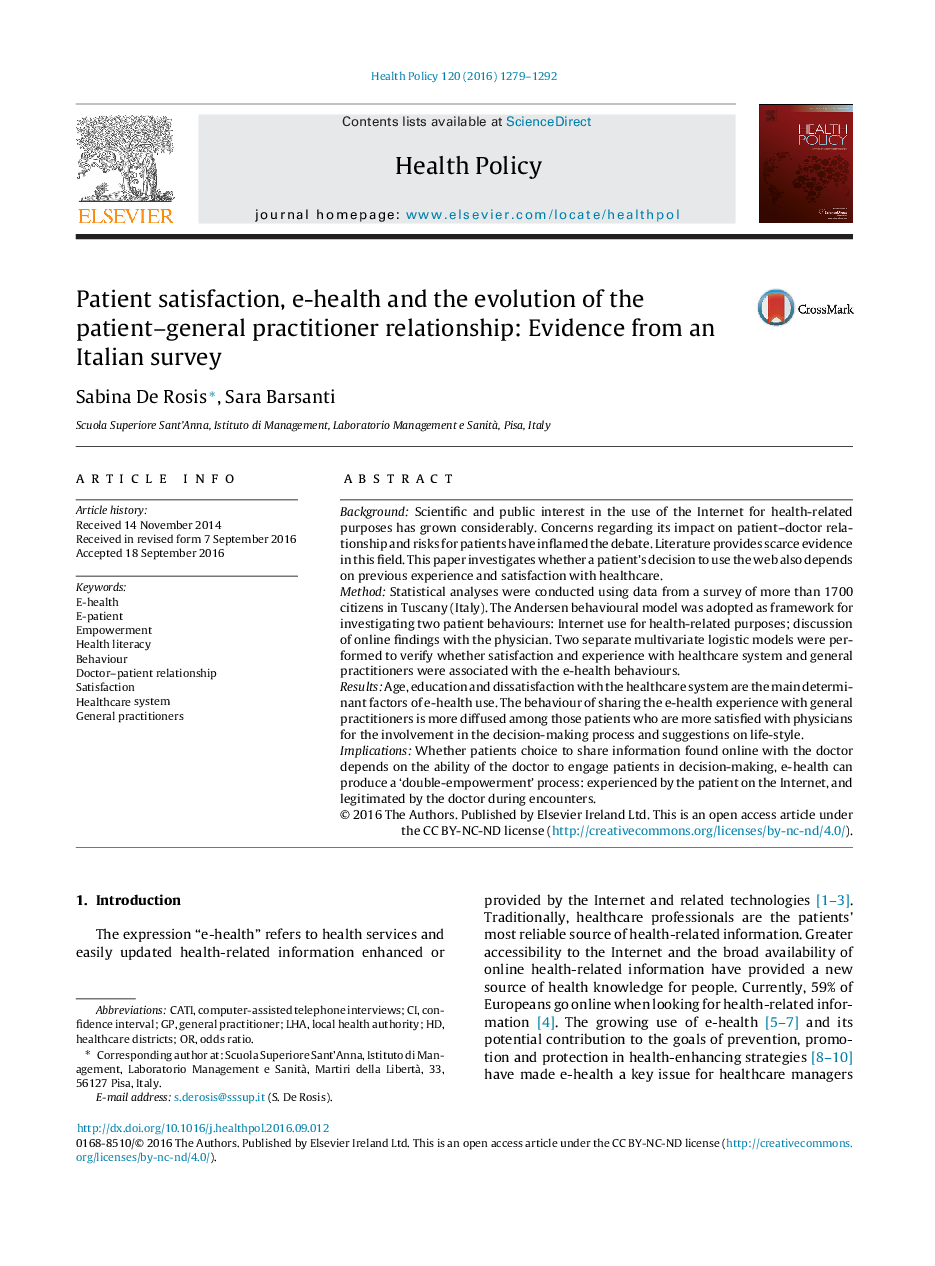| Article ID | Journal | Published Year | Pages | File Type |
|---|---|---|---|---|
| 5723431 | Health Policy | 2016 | 14 Pages |
â¢The e-health user is mainly young, healthy and literate, showing a digital divide in the opportunities of health promotion through the ICT.â¢Internet use for health purposes is affected by experience and satisfaction with the healthcare system, but not with the GPs.â¢Being satisfied with GPs' involvement in decision-making is a key factor affecting the patient behaviour of sharing e-health findings with the GP.â¢In the patient-web-physician triangulation, GPs play an important role in improving the 'appropriateness' of the Internet use.
BackgroundScientific and public interest in the use of the Internet for health-related purposes has grown considerably. Concerns regarding its impact on patient-doctor relationship and risks for patients have inflamed the debate. Literature provides scarce evidence in this field. This paper investigates whether a patient's decision to use the web also depends on previous experience and satisfaction with healthcare.MethodStatistical analyses were conducted using data from a survey of more than 1700 citizens in Tuscany (Italy). The Andersen behavioural model was adopted as framework for investigating two patient behaviours: Internet use for health-related purposes; discussion of online findings with the physician. Two separate multivariate logistic models were performed to verify whether satisfaction and experience with healthcare system and general practitioners were associated with the e-health behaviours.ResultsAge, education and dissatisfaction with the healthcare system are the main determinant factors of e-health use. The behaviour of sharing the e-health experience with general practitioners is more diffused among those patients who are more satisfied with physicians for the involvement in the decision-making process and suggestions on life-style.ImplicationsWhether patients choice to share information found online with the doctor depends on the ability of the doctor to engage patients in decision-making, e-health can produce a 'double-empowerment' process: experienced by the patient on the Internet, and legitimated by the doctor during encounters.
